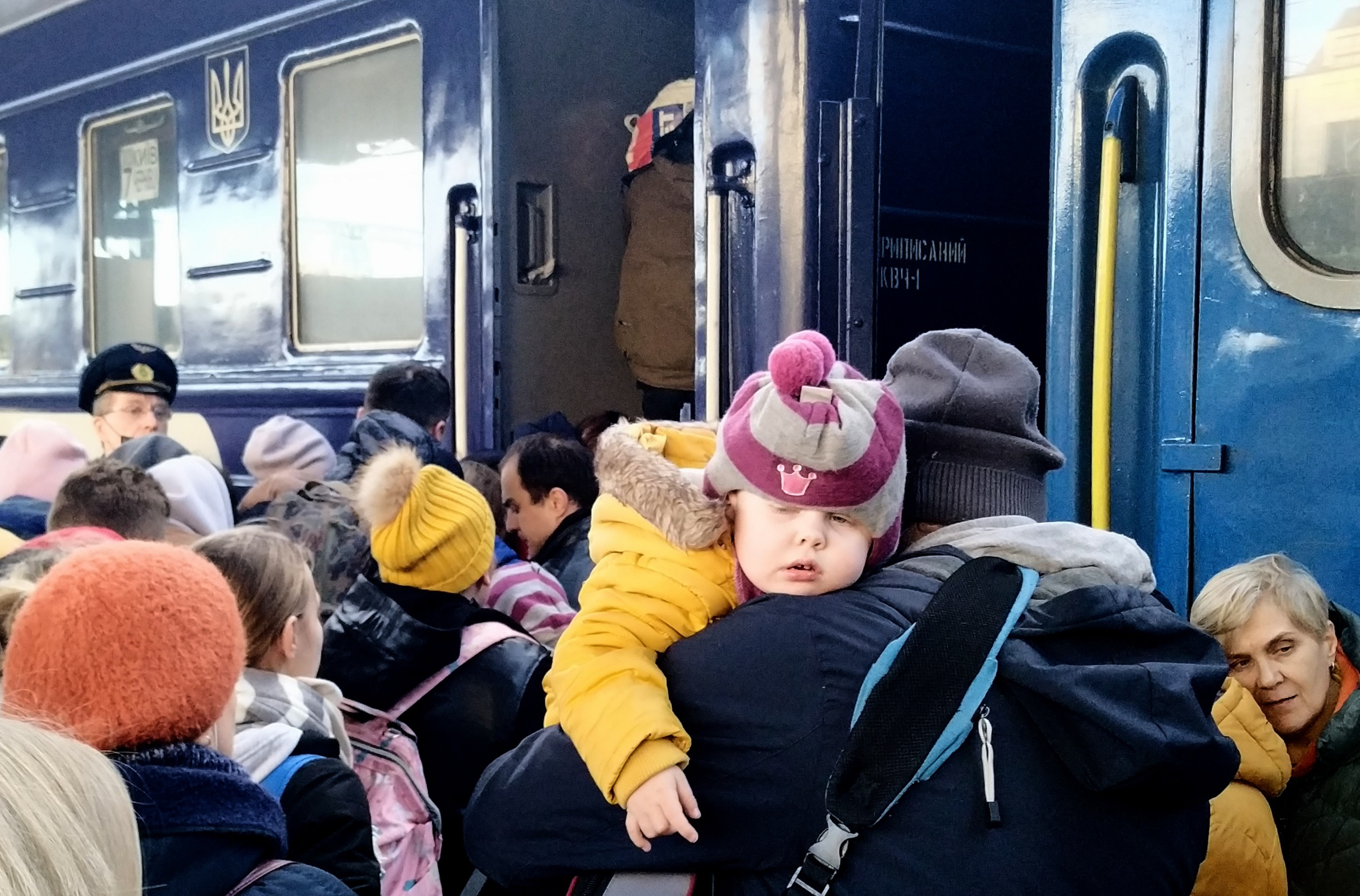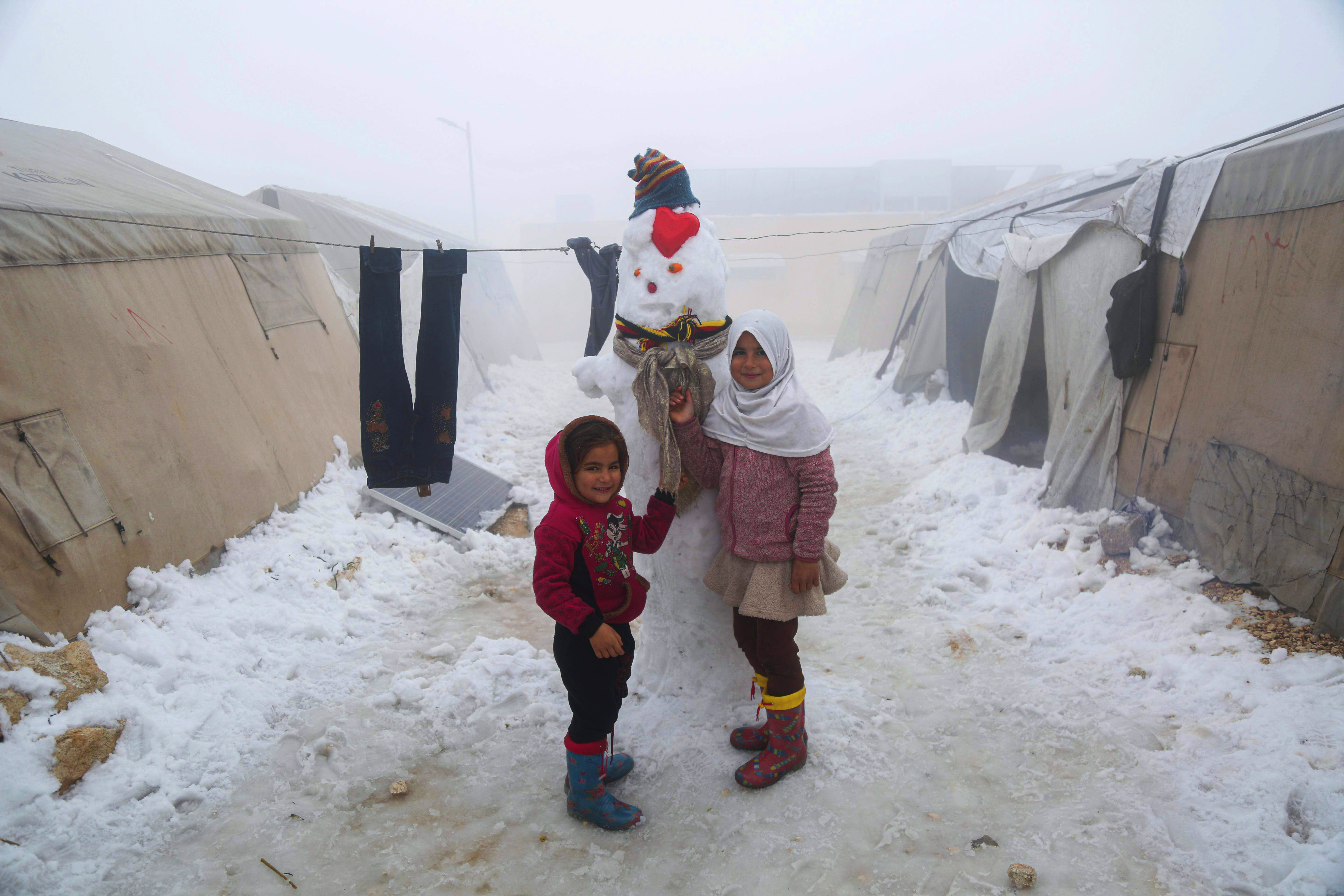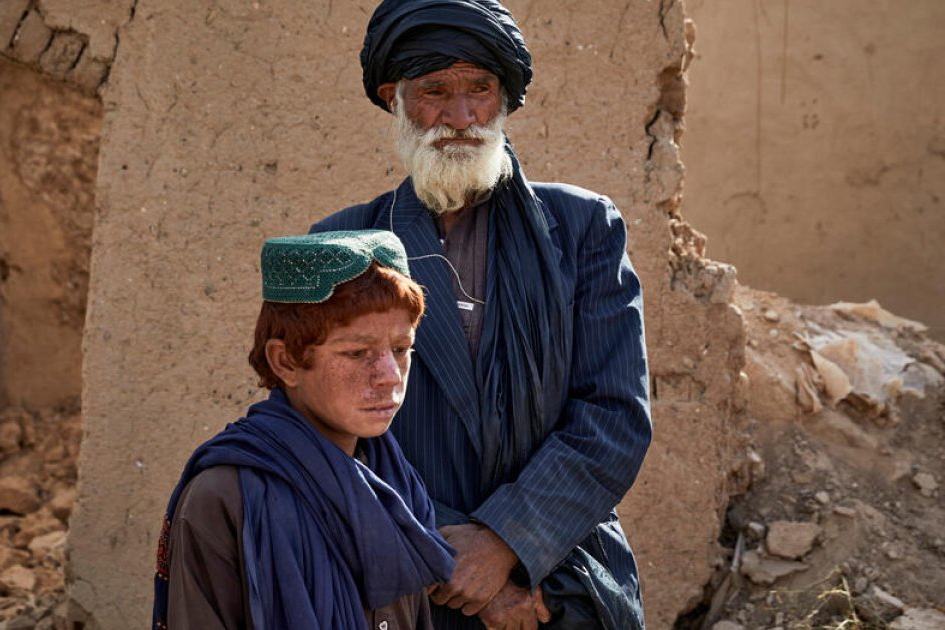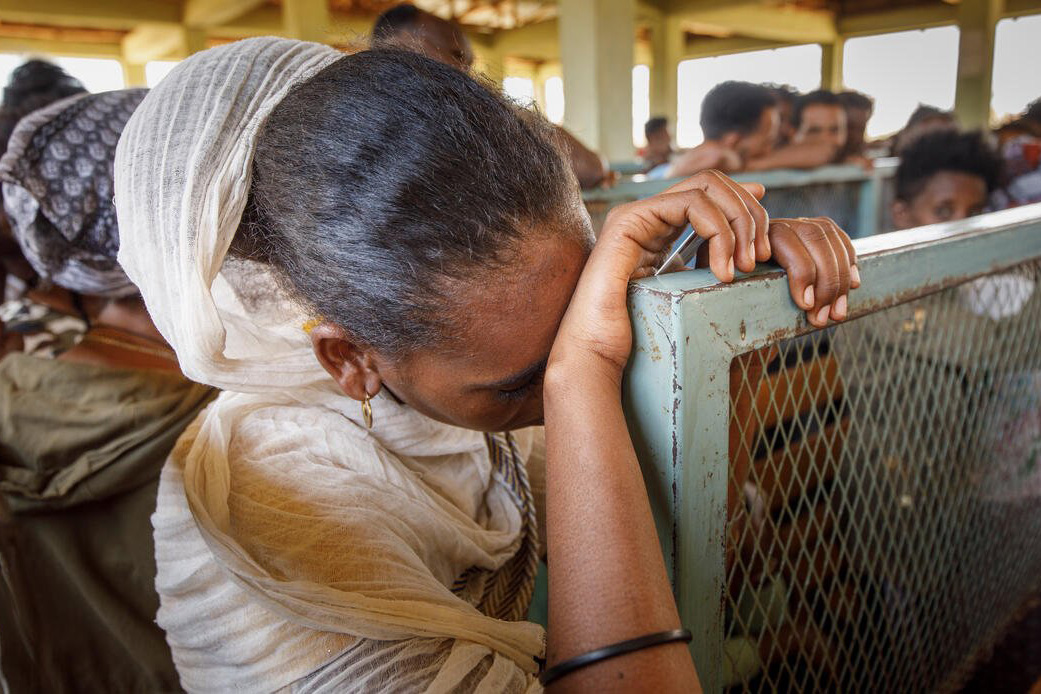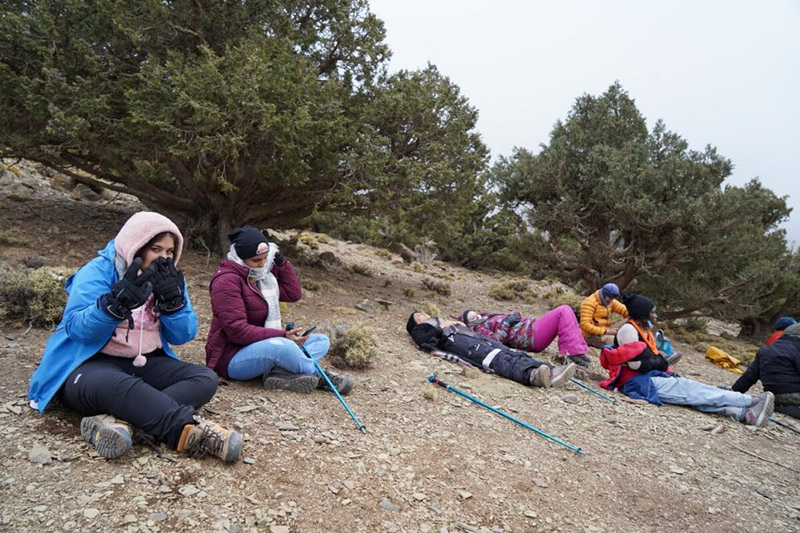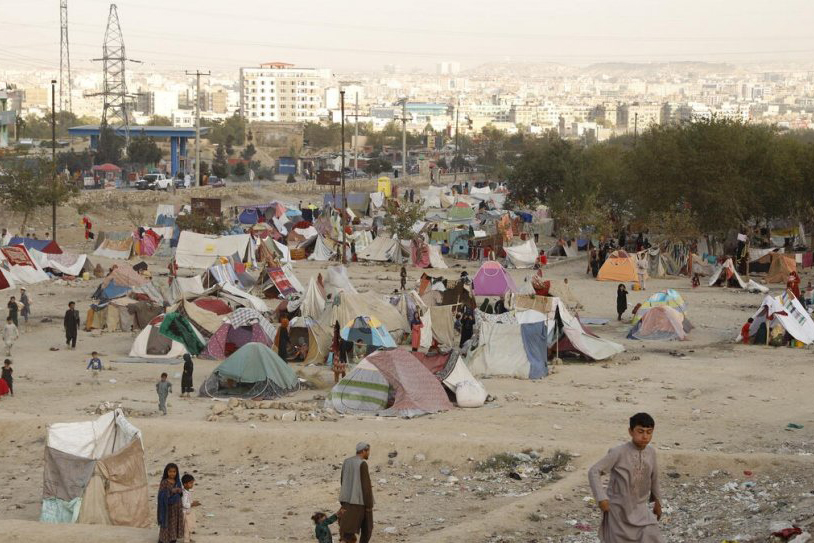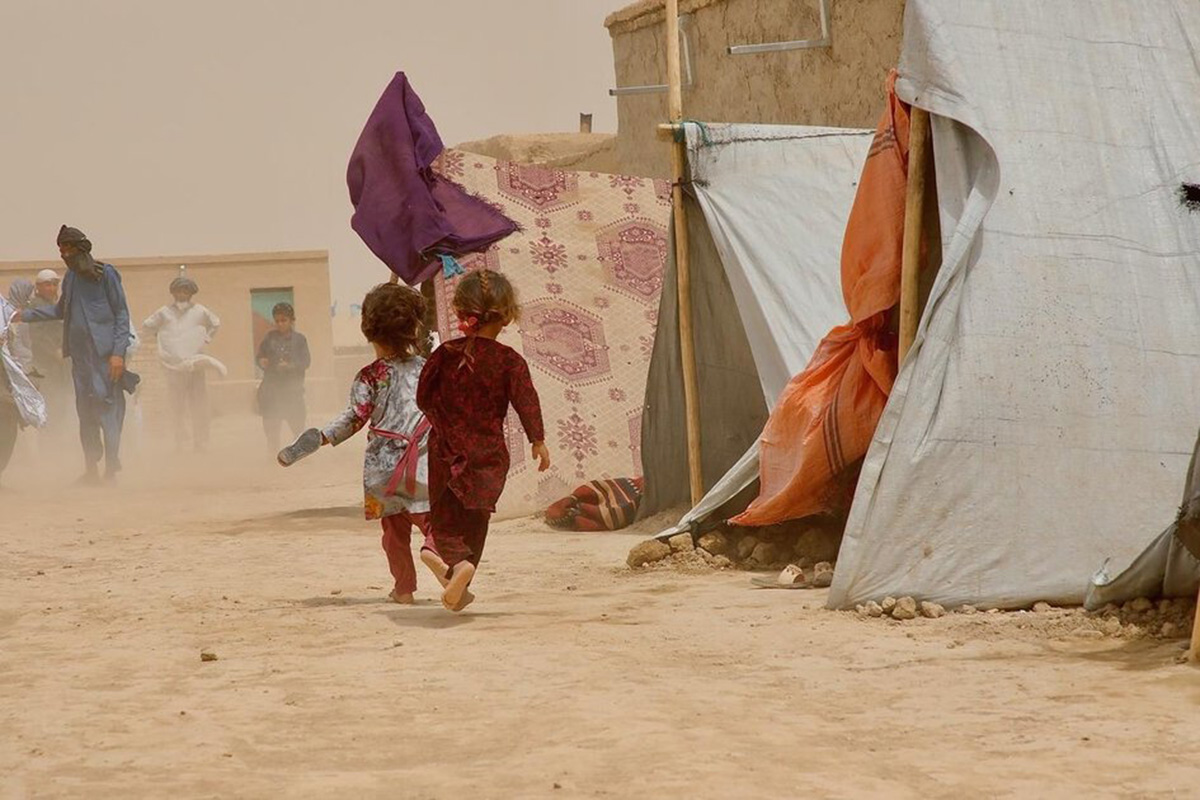Rockets have been “raining down” on Ukraine’s cities and hundreds of people have been killed or injured since the Russian military offensive began, said the UN Secretary-General, at the launch of a $1.7 billion flash appeal to provide urgently-needed assistance. António Guterres’s comments came as latest UN data indicated that 677,000 people have fled Ukraine since 24 February: “United Nations agencies and our partners are now working 24-7 to assess humanitarian needs and scale up aid, particularly to women, children, older people and those with disabilities.”
While the arrival of COVID-19 vaccines last year raised hopes of a way out of the pandemic, it also brought fresh waves of rumour and myth. Seeing the need to counter such myths, Laban and fellow volunteers, took action. They received guidance and verified information on the vaccine from UNHCR, to help them fight misinformation and answer the many questions people had. As COVID-19 spread, their network of 120 volunteers from the Great Step Initiative, a community-based organization that provides mental health services to refugees in Nigeria, swung into action to fight misinformation.
The snow fell thick and heavy in Idleb and Aleppo. Pretty white blobs of cotton. The children tried to get a grip on the slippery, slushy floor of this winter wonderland that destroyed homes in tents, schools in caravans. Yet there were snow fights, and someone made a snowperson with a heart. UNOCHA mobilizes and coordinates humanitarian assistance to people in need worldwide.
The end of the fighting in Afghanistan this summer meant this family could return to their house in Marja – a war-ravaged farming town in southern Helmand Province – after six years of moving between temporary dwellings. But the sight that greeted them on their return a few weeks ago was one of devastation. The entire back section of the house, located near a now-abandoned military base, had been reduced to a rubble-filled husk. There is hardly a building in the town that does not bear the scars of the conflict.
Afghanistan is on the brink of a humanitarian catastrophe. Following the withdrawal of US troops and the international sanctions imposed on the Taliban regime, the onset of the harsh Afghan winter has brought rising prices, and food has become increasingly scarce. Schools, clinics, and hospitals across the country have stopped functioning. The United Nations is launching a joint 2022 Afghanistan Humanitarian Response Plan and Regional Refugee Response Plan on 11 January at 11:30 CET. Watch the launch on UN WebTV.
Eritrean refugees wait to receive humanitarian aid at Mai Aini refugee camp in Ethiopia’s Tigray region. Conflicts, old and new, along with the increasingly disastrous impacts of climate change, drove a devastating rise in the number of forcibly displaced people this year. From Afghanistan to Ethiopia, people were uprooted by violence, persecution and human rights violations. Many of them faced additional hardships resulting from the COVID-19 pandemic, extreme weather, and increasingly restrictive asylum laws and border policies. UNHCR staff and partners were on the frontlines of new emergencies and ongoing crises in 135 countries around the world this year, but there were a number of situations that stood out due to their scale and complexity, as well as some memorable moments that showcased the talents and resilience of people forced to flee.
An all-female group, including 13 refugees from six countries, set out to climb Mount Toubkal – Morocco’s highest peak – to highlight the struggle to end violence against women.
In Kabul, nearly 50,000 Afghans displaced from other parts of the country by recent fighting are desperate to receive aid before winter sets in. With winter fast approaching, temperatures in the capital are already reaching close to 0°C at night and may dip to as low as –25°C in mid-winter, putting those sleeping outside at risk of hypothermia. Afghanistan is facing a worsening humanitarian emergency with the economy near collapse and about half the population now reliant on aid. There are more than 3.5 million people displaced by conflict inside the country.
UN-Habitat renews its commitment to furthering the implementation of the SDGs by offering governments practical expertise in urban internal displacement contexts and in durable solutions.
A recent IOM report calls to urgently improve support for tens of thousands of missing migrant families who are often forced to rely on smugglers and informal networks in tracing loved ones.
UNHCR announces the winners of the second annual Youth with Refugees Art Contest – the online sale of footballs featuring the designs will raise funds for sport programmes for refugees.
Refugee Para athletes relish the chance to compete at global level! Six refugee athletes lead the parade at the Tokyo Paralympics Opening Ceremony, sending a powerful message to the 12 million forcibly displaced people living with disabilities. The UN refugee agency, works to protect and assist those fleeing war and persecution. Since 1950, we have helped tens of millions of people find safety and rebuild their lives.
A group of refugee women are growing rice on a large scale, becoming the largest rice producers in Angola’s Lunda Norte province. Antoinette, also known as ‘Mama Antho,’ runs an agricultural association with some 30 refugee women who work on farms in and outside the settlement. Many of them have brought their agricultural expertise to a region that is not known for farming. The women produce between 500 to 600 kilograms of rice per harvest, making them the largest rice producers in the province.
When people go missing on migration journeys, their disappearance has reverberating effects on their families and communities left behind. IOM aims to learn how people with missing migrant relatives cope with the absence of their loved ones while actively seeking answers, and how they could be better supported in their efforts by governments and other actors.
The UN Refugee Agency released a non-return advisory for Afghanistan, calling for a bar on forced returns of Afghan nationals, including asylum seekers who have had their claims rejected. In the wake of the rapid deterioration in the security and human rights situation in large parts of the country and the humanitarian emergency, UNHCR calls on States to halt forcible returns of Afghan nationals who have previously been determined not to need international protection. UNHCR remains concerned about the risk of human rights violations against civilians in this evolving context.

